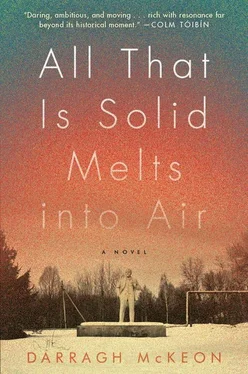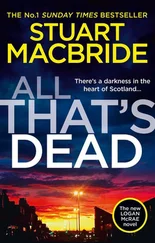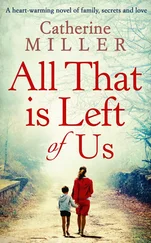Particles skimming through the air. Underneath what he sees and smells and hears. Snowflakes concealing their star-tipped patterns. Animals curled up under the ground seeing out the winter, their hearts beating with only the faintest of rhythms. His father is here: a shadow dancing, merged into the life around him. Inhabiting the cells of these things, just as radiation, displaced atoms, inhabited his own living cells, changing him.
He would listen to his father’s tales, drinking his glass of milk, resting like a sick calf in his father’s arms.
Aslight buzz bores through the air. If you look across Red Square at this particular moment, you can see several people twist their heads in sync, turning their faces towards the noise. A small white plane edges its way under the clouds, emerging strange and determined. A ripple of awareness, people nudging each other at the sight, anticipation building as the sound gains clarity, closing in on them. The plane banks and sweeps its way towards St. Basil’s cathedral, looking like a fixed-winged gnat in contrast to the grandeur of the iconic, bulbous domes. Everyone gazes at the same point. Hands are raised, the scattered gathering pointing at the sight, following its direction, the plane travelling along the flight path of their fingers as if they are guiding it downward, the autonomy of the small craft abandoned to the will of the collective. The plane circles once more, lower now, the propeller hum dominating everything until it dips from sight. Those closest can hear the short screech of a landing and a rattle of wheels on the cobbles along Vasilevsky Spusk, the plane bouncing and jolting as it taxis along parallel to the Kremlin walls and emerges into the expanse of Red Square. The crowds stream towards it, waiting for the solid figure of Gorbachev to emerge, the premier descending from on high, landing just outside his office, but the plane contains only a lone pilot, a tall, skinny, dark-haired young man wearing sunglasses and a red aviator’s suit.
They encircle him, curious. Tourists thrust notebooks towards him, asking for an autograph. Others place bread into his hands, and he chews it sidemouth and nonchalantly takes the pens and signs his name. Mathias Rust. Alighting from the heavens with a twenty-page plan to end the Cold War.
The bus stops in the Arbat, and Margarita, Vasily’s wife, gets off and takes two steps and feels a hand on the small of her back. She turns quickly, ready to strike, then stops, shocked.
“Come with me.”
Maria guides her through an alleyway crammed with street vendors selling nuts and dried fruit, and there’s a smell of spices in the air, mixed together, indistinct, and they take several turns left and right, slipping through the crowd, and end up in the Mololodjosh Café on Gorky Ulitsa. It’s a Saturday afternoon, which means there’s a jazz band playing. They sit side by side in the back, in the dark.
“I’m sorry for all this,” Maria says. “I called to your apartment this morning, but there was a white Volga parked outside with a good view of your window. I wasn’t sure if you were aware.”
“Don’t worry. I’m aware.” Margarita repeated the words, ruefully this time, letting her spite roll over the syllables, “I’m aware.”
Maria waited for her to continue.
“I don’t know why they’ve decided to pitch up on my doorstep. This is the worst of it. If there was something I could do or stop doing, it would be so much easier. Some kind of solution to this. But there isn’t. I’ve gone weeks without sleep, thinking over the possibilities. I’m sick with fear. What would the girls do without me?”
The waiter brings water and a glass of cognac for each of them.
Maria says, “I’m sorry. I don’t want to make things worse. I felt I had no choice but to follow you. I haven’t had any word. I just need to know something. The hospital won’t help. There’s no one else to turn to.”
“You look as tired as I do,” Margarita says. “How long is it since you’ve heard from him?”
“I haven’t. I only found out just over a week ago, from the doorman in his building. If I think of all that he’s been through all this time. I didn’t even get to say good-bye, not that a good-bye would have been any help.”
“I barely did myself—say good-bye—it happened so quickly. He was here, at home, then he wasn’t. No warning of what it would be. I had no idea of the seriousness.”
“Did he?”
“Yes, although he didn’t let on. But when I think back, the way he played with the kids, I could tell. Lifting them up, turning them upside down. Things he hadn’t done since they were much smaller. A need to touch them. I should have known then. But we find ways, don’t we, to deny what’s in front of us.”
Maria nods. Margarita checks her watch.
“I can’t stay too long. I came to town to get a break, leave it all behind for an hour. But now that I’m here, I feel I should be back there. I don’t want them to wonder about me.”
“The girls?”
“No, the girls know where I am. I mean the watchers. I can’t even tell how many of them there are—maybe just four, taking it in shifts. If I think about them filing their reports… How do you wake up in the morning and go to a job like that?”
“They enjoy it.”
“Of course they do. My Sasha waves at them on the way to school. They wave back, all smiles, shameless. I told her they’re friends of Vasily’s, told her they miss him as much as she does. Told her they’d get upset if she ever talked about her father to them, they’d start to cry. I don’t know if she believes me or if she’s just putting on a show. I find such things hard to distinguish now. She never asks about her father. Maybe because she knows I won’t tell her anything. But it’s also possible she knows more than I do. Not a single question in the past two or three months. As if we’re living in totally normal circumstances.”
“Have you talked to him?”
“If you can call it that. I can hardly recognize it’s him. He’s developed this mechanical way of speaking to me. I know he does this to let me know he’s not keeping things from me on purpose, to remind me that they’re listening, but it feels like having a conversation with the memory of your husband. It’s only at the end, when we talk about my day, when he asks about the girls, says his good-byes, it’s only then his voice warms. It’s only then I get a little of him through the phone line.”
“So you know nothing either?”
“Not anything more than we see on TV. ‘You don’t need to worry,’ he says. ‘We’re making a lot of progress here,’ he says. ‘The men are very committed,’ he says. So, I worry.”
“This is what we do.”
“This is what we do. You haven’t been together for years, but of course you worry. How can you not?”
“Has he mentioned Grigory?”
“No. I’ve asked him, certainly. But whenever I ask, he says he has a meeting to go to. He obviously says this when there’s something he can’t discuss. I ask him why they’re having meetings at night. Can they not plan their days a little better? He doesn’t even laugh.”
Maria rakes her fingers across her forehead.
“Don’t read too much into it—or maybe do, I don’t know. He can’t talk about anything, believe me. He can only tell me about such mundane things. If he could talk about it, at least then I’d feel I’m helping. A voice he can turn to.”
“He hears your voice. I’m sure it’s helping more than you know.”
“At least they have each other, going through what they’re going through.”
“We can’t imagine.”
Читать дальше












